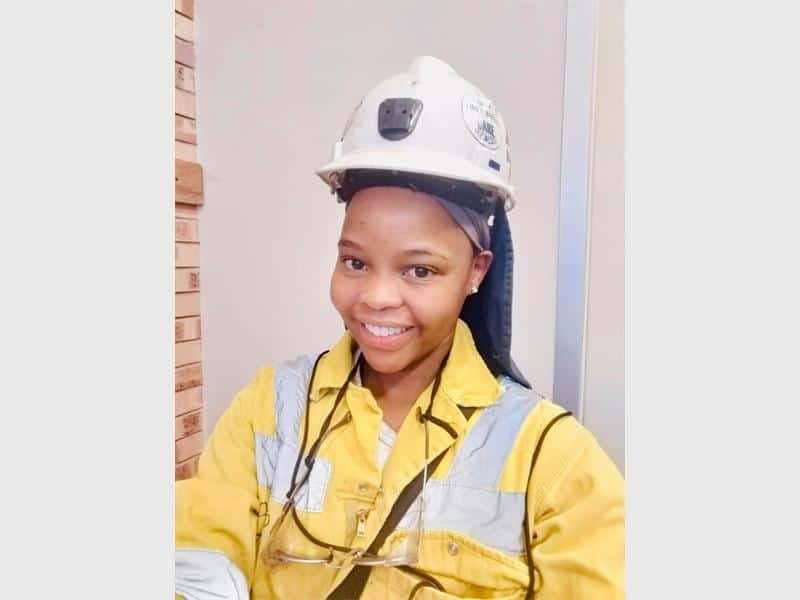Selecting the correct career path is a crucial decision with far-reaching implications. It is a choice that will shape your future, underscoring the importance of making an informed decision.
Over the next few weeks, The African Reporter will engage with business people, professionals, and other role players, focusing on a specific career field every week.
Through this, we aim to provide valuable guidance to our younger readers navigating their career choices. This week we give a platform to the mining engineer career.
Lorato Oreboleng is a mining engineer and a graduate in mining engineering and business management. Her advice to the next person is, “When you decide to join the mining industry, join it because you have a curious mindset and want to bring solutions to challenges.
“Mining contributes largely to the economy, and you need to be open-minded about your solution. Invest in your mental health and be willing to grow. “
What is mining?
Mining is the extraction of valuable minerals, metals, and other geological materials from the Earth. These materials include coal, gold, diamonds, copper, iron ore, and many others, which are used in construction, manufacturing, energy production, and more.
What is a mining engineer?
A mining engineer is a professional who designs, plans and oversees the construction and operation of mines. They ensure that the mining process is efficient, safe, and environmentally responsible.
ALSO READ: From the background to the mic, local rapper steps into the spotlight
What do mining engineers do?
Mining engineers are involved in the planning and designing of mines, selecting appropriate mining methods, supervising mining operations, ensuring worker safety and environmental protection, managing budgets and equipment and conducting feasibility studies for mining projects.
Where can I study to become a mining engineer?
You can study mining engineering at universities and technical institutions around the world. Some notable universities include:
• University of Witwatersrand
• University of Johannesburg
• University of Pretoria
• University of South Africa
• Colorado School of Mines (USA)
• University of Queensland (Australia)
• University of British Columbia (Canada)
• Camborne School of Mines (UK)
How long does it take?
It typically takes four to five years to become a qualified mining engineer:
• High School (Grade 10–12): Focus on Mathematics and Physical Science
• Bachelor’s Degree (four years): Complete a degree in Mining Engineering
• Internship (during or after studies): Gain practical experience through internships or in-service training.
• Registration/Licensing (optional but beneficial): Register as a Professional through ECSA (The Engineering Council of South Africa). Acquire the Mining certification (Rock Breaking/ Blasting Certificate, mine manager certificate of Competency through the Department of Mineral and Petroleum Resources (DMPR)
• Further Studies (optional): Pursue a master’s degree or PhD for specialisation or research roles.
Which high school subjects do I need?
• Mathematics
• Physical Science (physics and chemistry)
• English (for communication and report writing)
ALSO READ: Embrace the twists and turns of your learning journey: Becoming a pharmacist
Are there different mining engineers?
Yes, some specialisations include:
• Mine planning engineers – Design mine layouts and long-term plans.
• Geotechnical engineers/rock engineers – Assess ground stability and rock mechanics.
• Ventilation engineers – Design air flow systems in underground mines.
• Mineral processing engineers – Focus on separating minerals from ore.
There is also an opportunity to move into consulting where you advise some mining companies depending on their needs as well as moving into the banking sector for the economics side of mining.
What skills do I need I order to become a mining engineer?
• Strong mathematics and physical science background
• Good problem-solving and analytical skills
• Computer skills (CAD, mining software)
• Teamwork and communication abilities
• Attention to safety and detail
• Physical and mental endurance
What are the roles and responsibilities of a mining engineer?
Mine planning and design, operations management, safety and risk management, cost control and budgeting, environmental and regulation compliance, technical support and reporting, Continuous improvement and team development.
What are the advantages and disadvantages that come with the job?
Advantages include global career opportunities, exposure to new technology and high earning potential and the disadvantages are remote and isolated work locations, safety risks and physical and mentally demanding.
Where do mining engineers work?
Mine sites (surface – open pit, underground and quarries), corporate and head/technical offices and research and development institutes (CSIR).
ALSO READ: Embrace the twists and turns of your learning journey: Becoming a midwife
At Caxton, we employ humans to generate daily fresh news, not AI intervention. Happy reading!
Stay in the know. Download the Caxton Local News Network App here.


